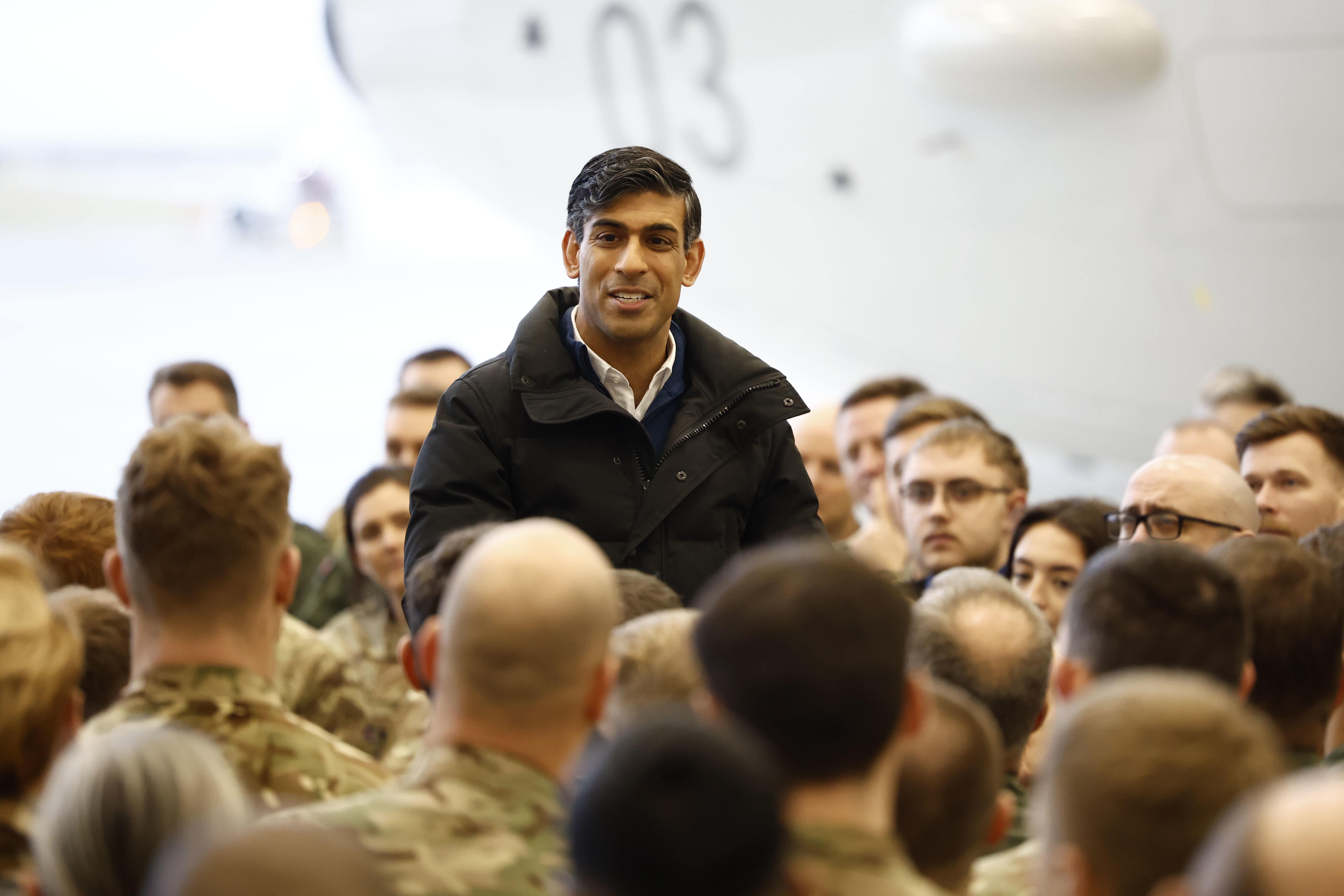John Curtice warns Sunak his national service plan will not close poll gap with Labour
Exclusive: Top pollsters have warned that the national service plan will not help Rishi Sunak beat Keir Starmer’s Labour
Rishi Sunak’s pledge to reintroduce national service will not help him close the gap on Labour, leading pollsters have warned.
The Conservatives announced the policy over the weekend in the hope it would move the dial on terrible polling returns which have them trailing by more than 20 points behind Labour.
But while the announcement helped distract from a much criticised start to the election campaign by the prime minister and his inner circle, there are serious question marks over whether it will provide the Tories with the poll boost they need.
Polling expert Professor Sir John Curtice admitted to being sceptical about the effect.
Asked if it would shift the polls, he replied: “No. It was designed to appeal to their [the Tories’] base which is older.”

Leading pollster and Tory peer Lord Robert Hayward said: “It will have a limited impact either way.
“There will be some extra underlying impact but nothing more amongst white working class voters – in other words, those who have left [the Tories] or are uncertain in red wall areas.”
He added: “The Tories are already very weak amongst young voters, so limited further impact on that vote.”
But he noted: “In part the impact will depend how much noise this [policy] continues to have.”
Michela Morizzo, chief executive of Techne UK, warned that the policy is more likely to have a negative effect.
She pointed out that the latest weekly tracker poll by Techne shows 18 to 24-year-olds supporting Labour by 53 per cent to the 13 per cent who back the Conservatives.

She said: “It’s unlikely to be well received, and now I’ll explain why. Non-military volunteering is fine, it would be a service for the community and therefore a cost with a high-level benefit.
“Very different is the compulsory military service, also because wars are now entrusted to highly specialised personnel. That would indeed be a cost, and, moreover, I think it is just wrong to put the two measures together.”
She added: “It seems an old-fashioned proposal, newborn of an old vision. And anyway people are aware of that and wouldn’t take it well.
“In my opinion it would be strategically better to proceed with the idea of the civil/ volunteering service, or local service.”
Mr Sunak pledged to get 18-year-olds to either join the military for 12 months or do “volunteer” work one weekend a month for a year.
The prime minister said the policy would help unite society in an “increasingly uncertain world” and give young people a “shared sense of purpose”.
Join our commenting forum
Join thought-provoking conversations, follow other Independent readers and see their replies
Comments
Bookmark popover
Removed from bookmarks